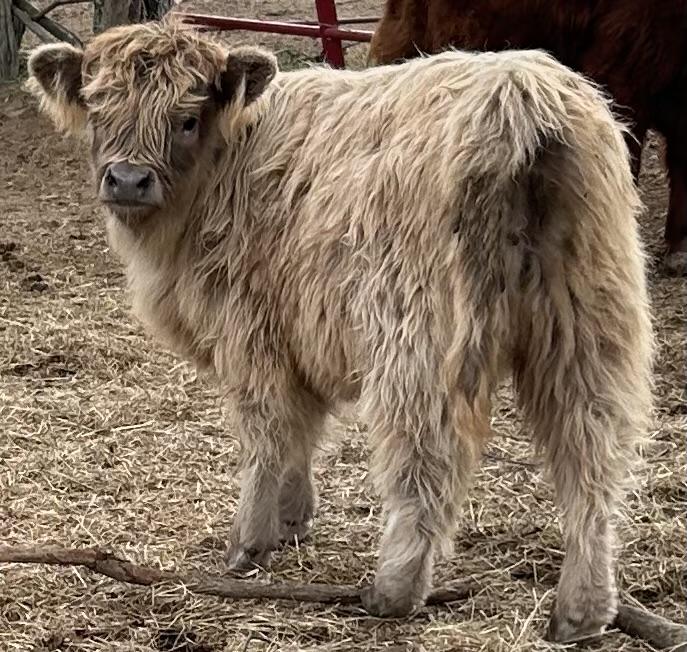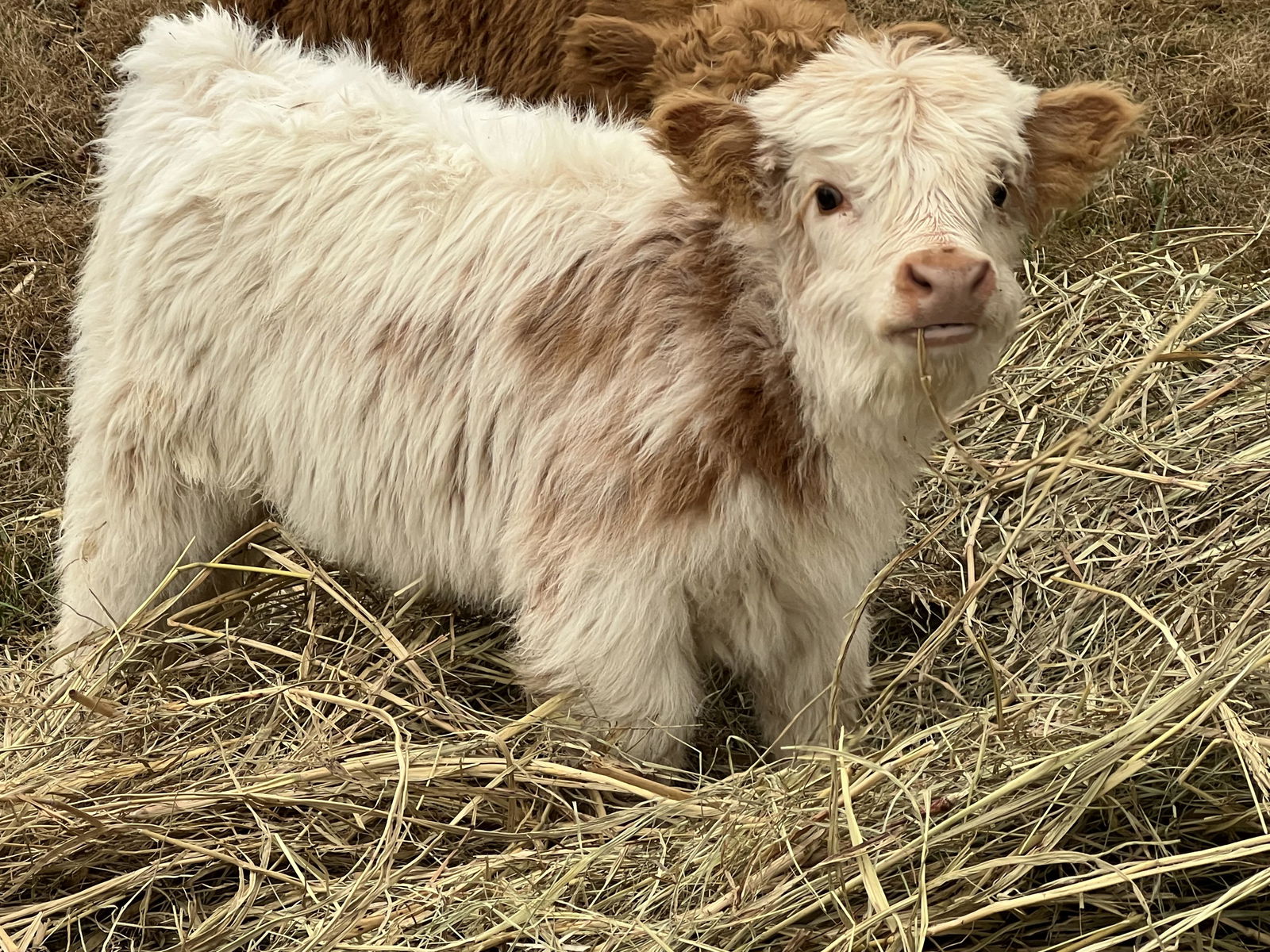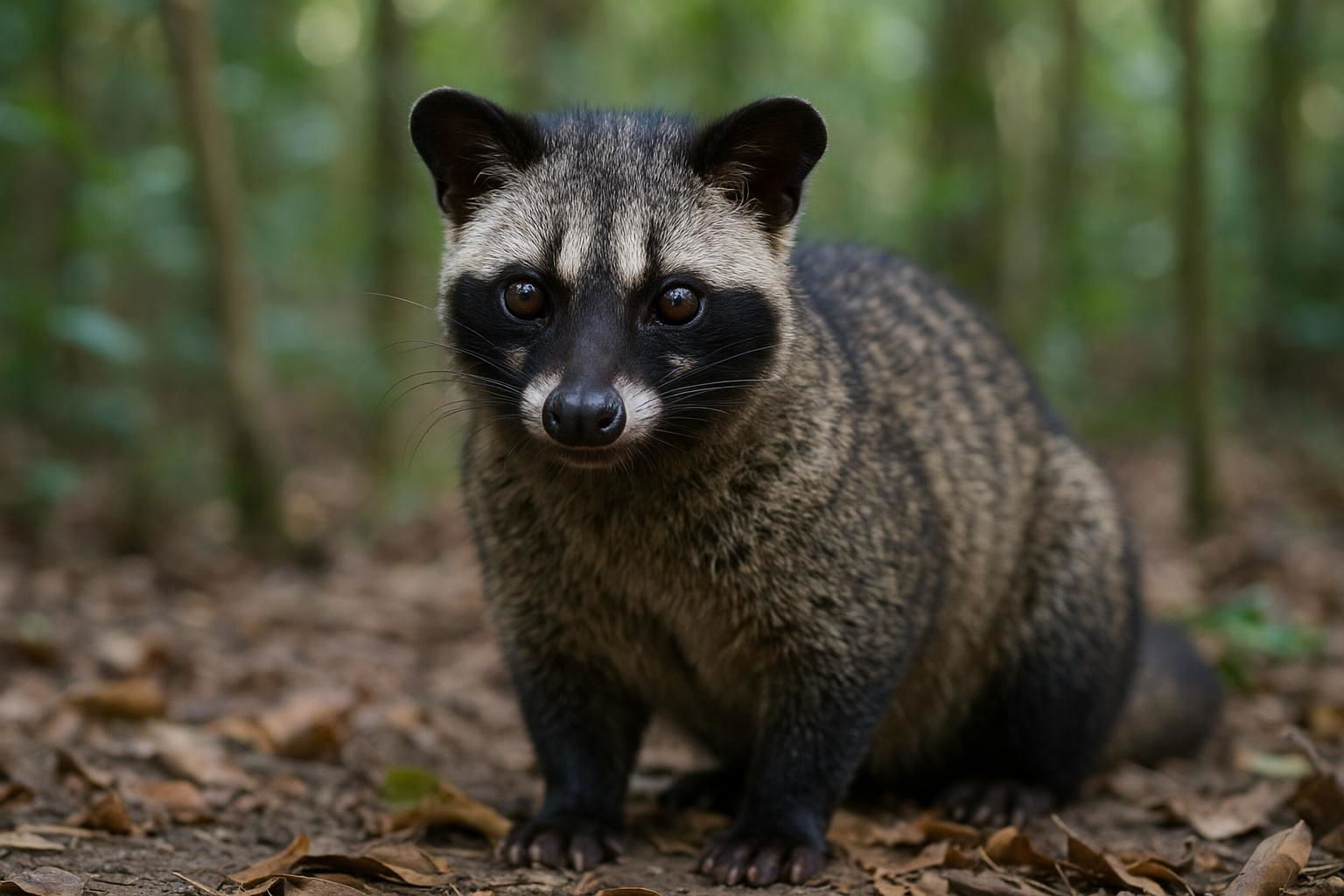
Asian Palm Civet
Paradoxurus hermaphroditus
The Asian Palm Civet, scientifically known as Paradoxurus hermaphroditus, is a small, nocturnal mammal native to Southeast Asia and South Asia. This intriguing species possesses a short, dense coat that ranges in color from gray to brown, with distinctive black markings on its face, resembling a mask, and a long, bushy tail. Renowned for its arboreal lifestyle, the civet is adept at navigating the forest canopy, where it primarily feeds on a diet of fruits, such as palm fruits, along with small animals and insects.
Despite its individualistic and solitary behavior, the Asian Palm Civet plays a crucial ecological role as a seed disperser, aiding in forest regeneration. Interestingly, it has garnered attention for its involvement in the production of the luxurious kopi luwak coffee; the beans are processed through the civet's digestive tract, claiming to impart a unique flavor. However, this practice has raised ethical concerns regarding the treatment of civets in captivity.
Adaptable and resilient, the Asian Palm Civet thrives in a variety of habitats, including tropical forests, plantations, and even urban areas. While not currently endangered, habitat destruction and illegal wildlife trade pose significant threats to their populations in the wild. Conservation efforts are essential to ensure the survival of this fascinating species, which continues to intrigue researchers and wildlife enthusiasts alike.

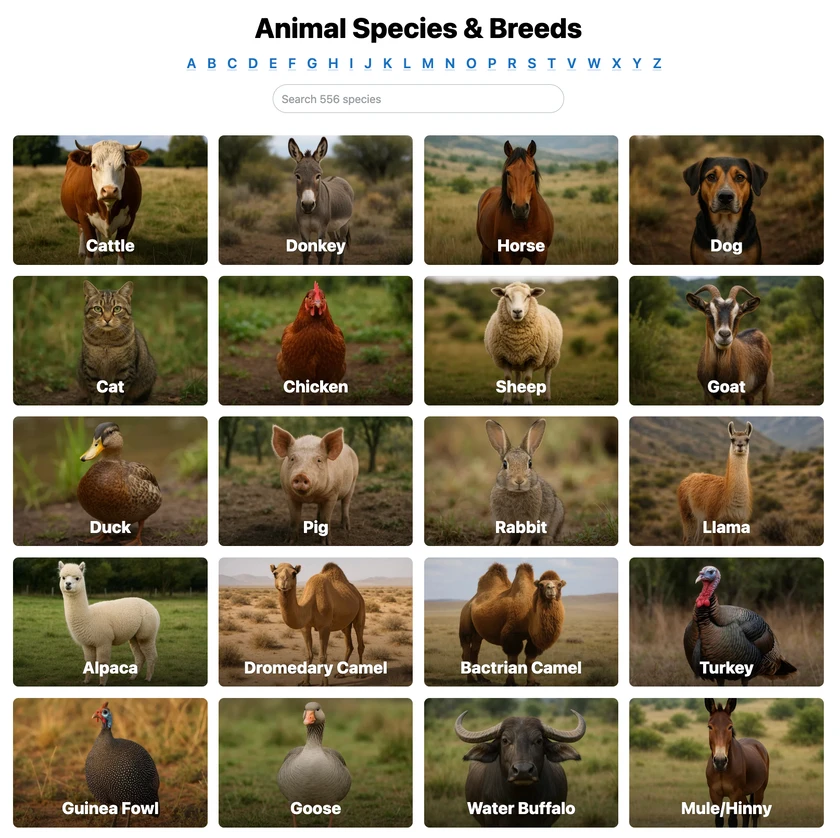 All Species & Breeds
All Species & Breeds
 Highland Cattle
Highland Cattle
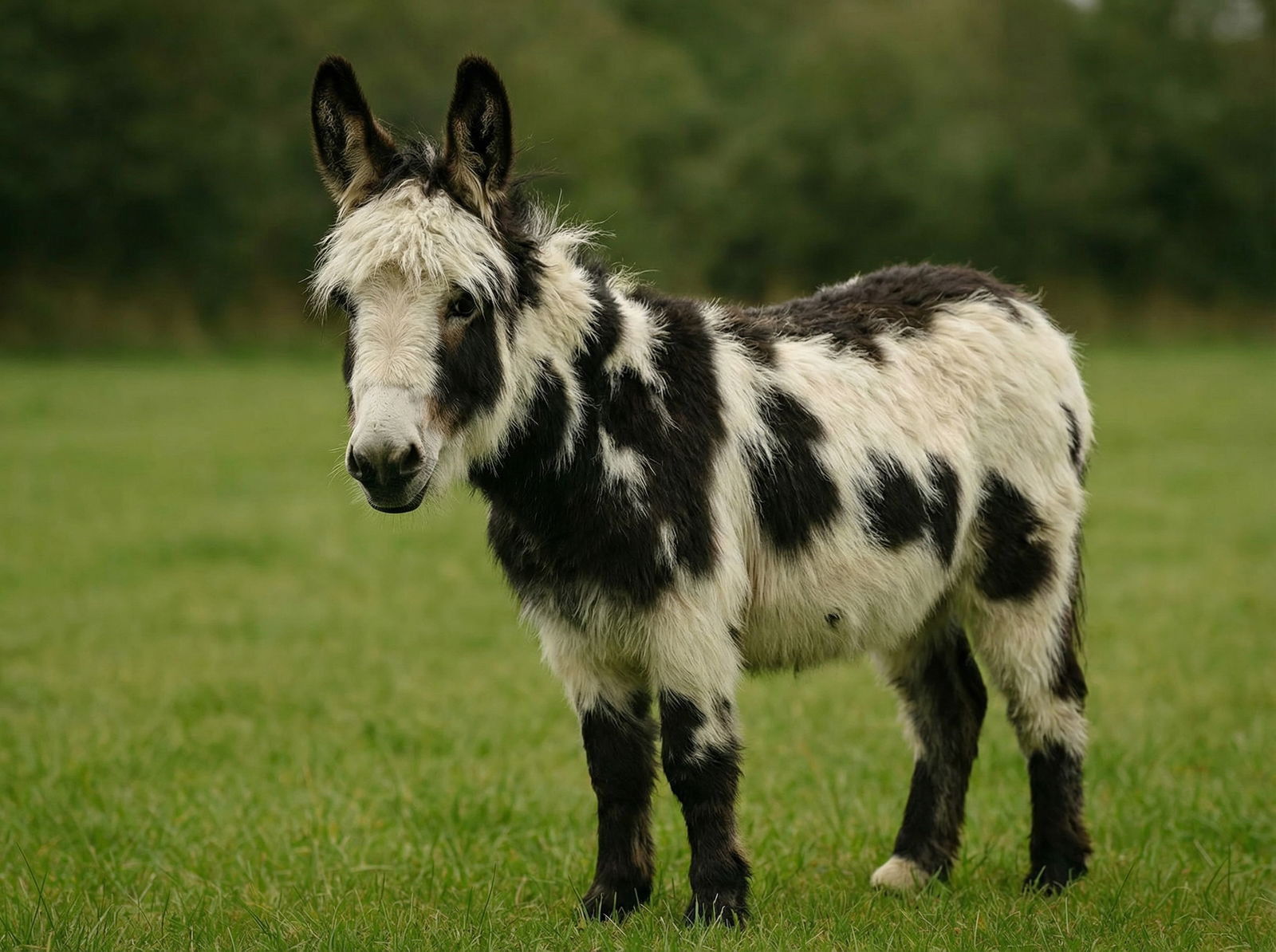 Miniature Donkeys
Miniature Donkeys
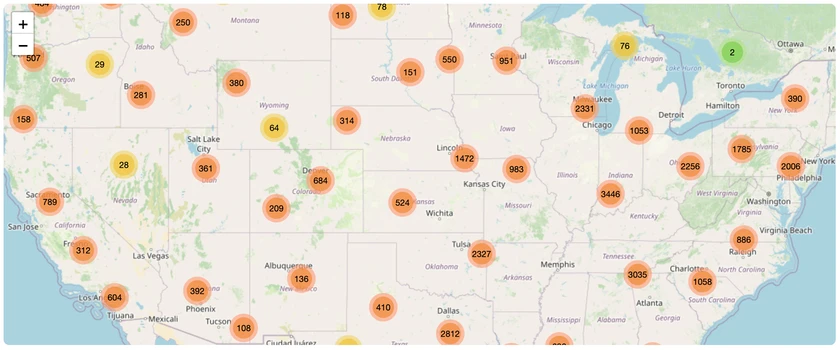 All Species Directory
All Species Directory
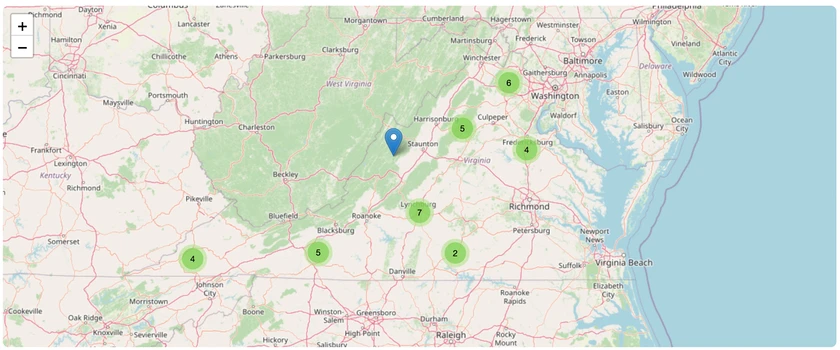 Highland Cattle in Virginia
Highland Cattle in Virginia
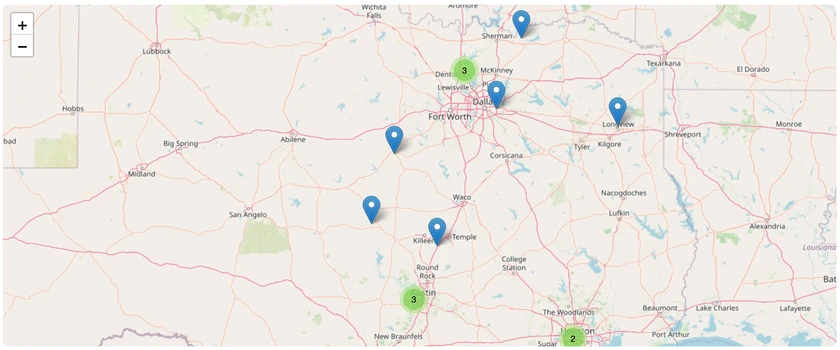 Miniature Donkeys in Texas
Miniature Donkeys in Texas
